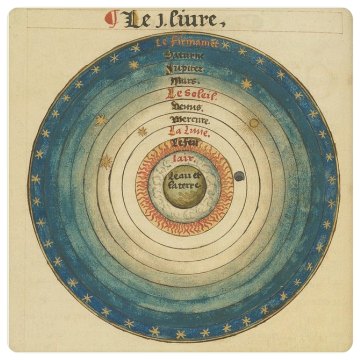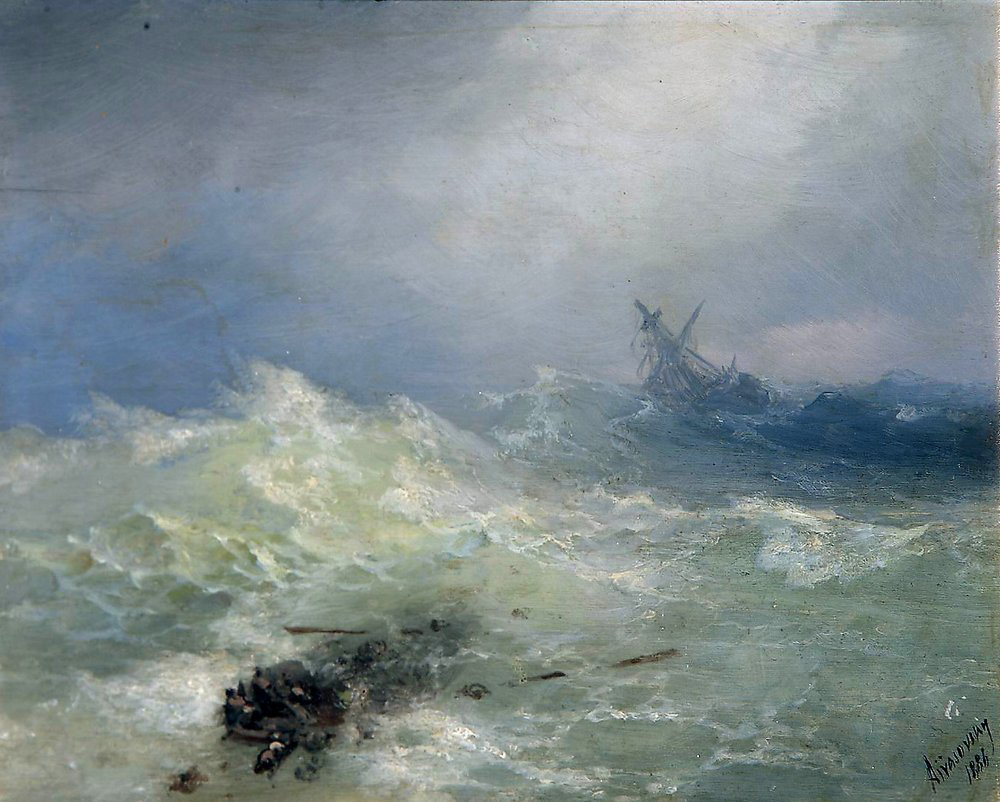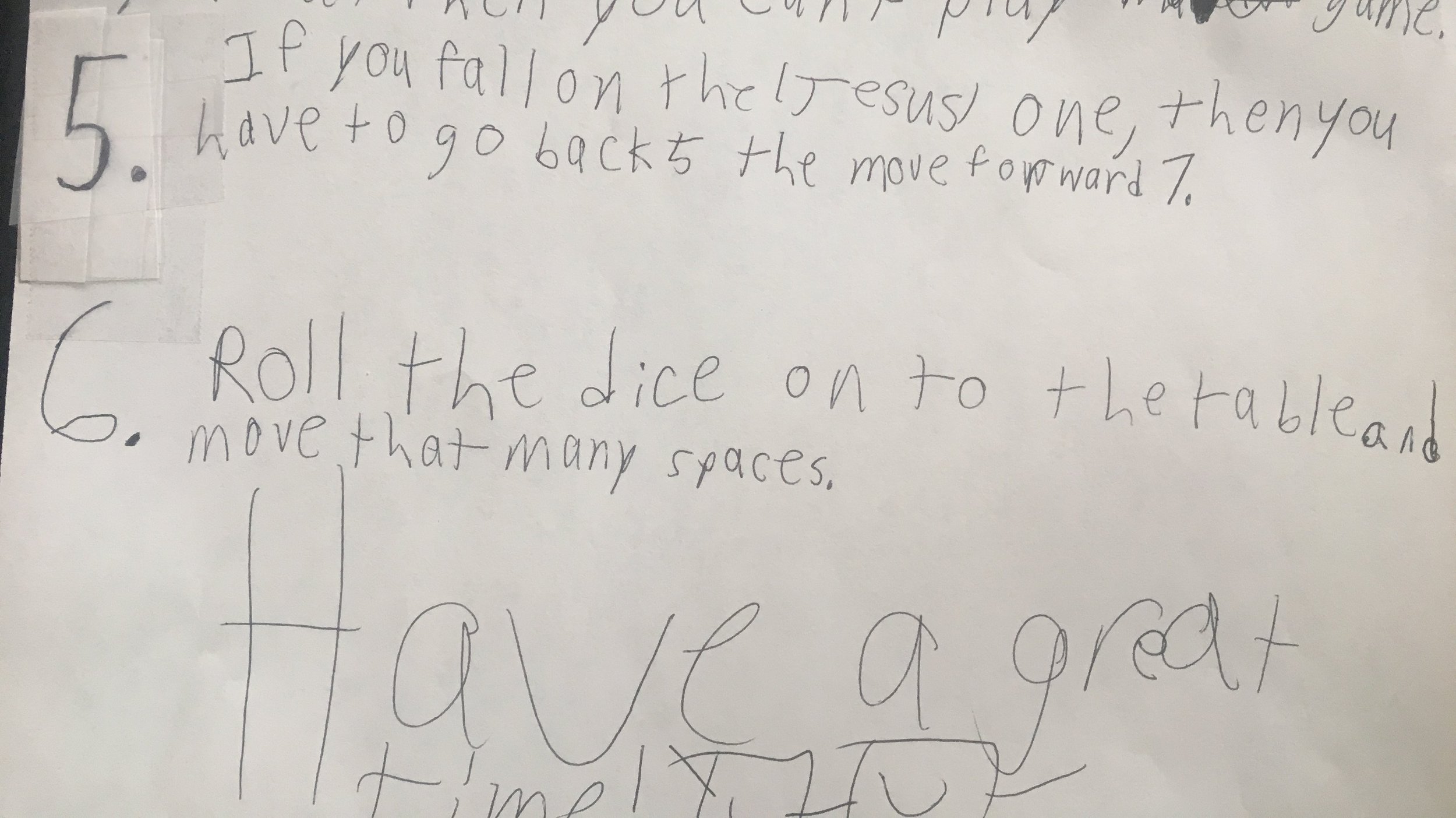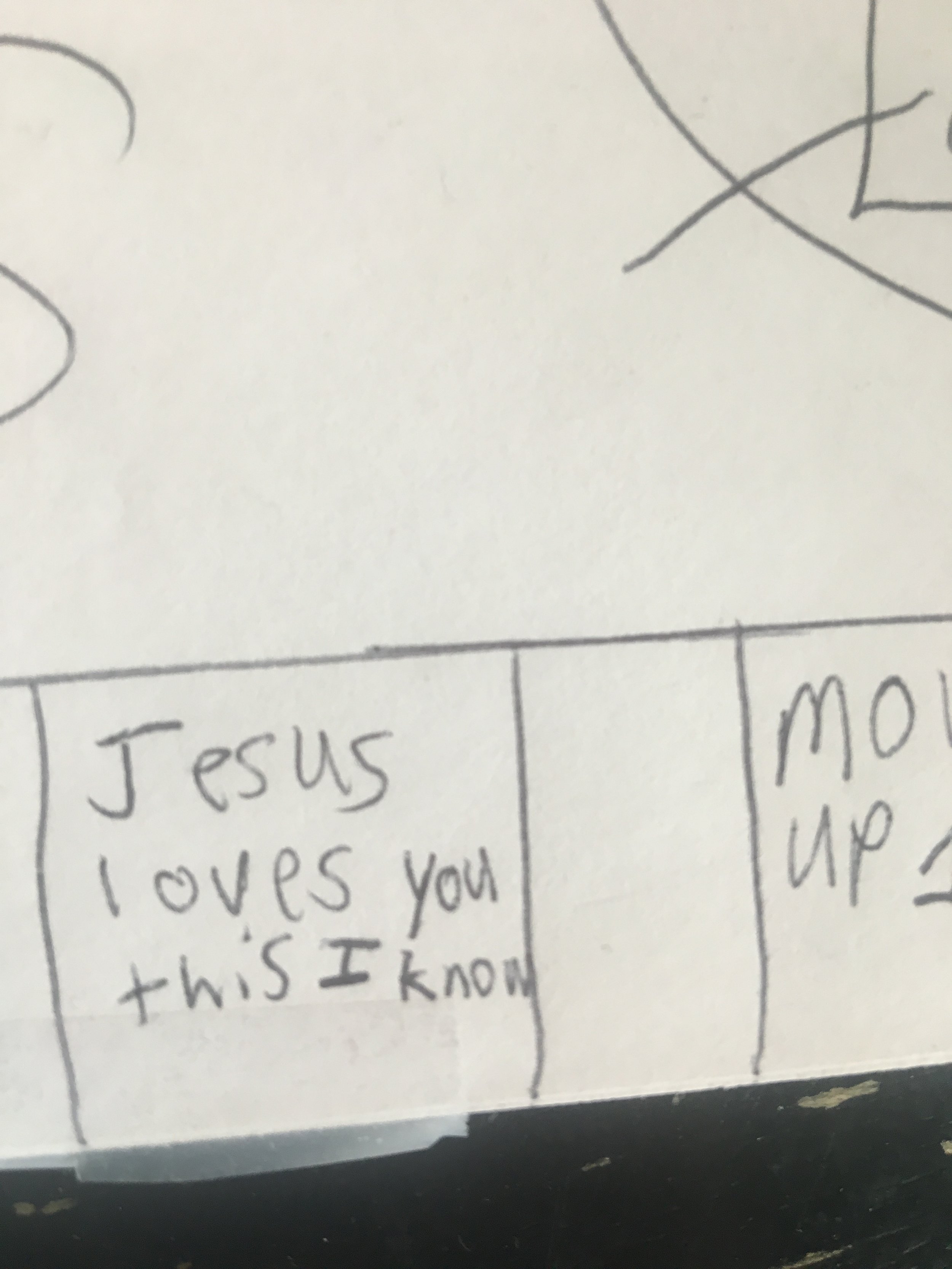My heart skipped a beat when she said it.
“When I was a kid, you mostly told us about the love of God, so it threw me for a loop when I found out that He had wrath, too. I didn’t know how to process a God who could do some of the hard things he did. It seemed like this was a different being than the one I had been taught to worship.”
She was right. The accusation was fair. I gave our kids children’s Bibles full of cartoon drawings that simplified and softened the stories of the actual text. I wasn’t trying to hide anything; I was just trying to be age appropriate. Some of the stories in the Bible are difficult--how do you tell a six-year-old that a Levite’s concubine was raped to death then cut into twelve pieces and shipped bit-by-bit across the nation?
I think I made a subconscious choice, too. I grew up in the 70’s and 80’s, years when consumer-driven mega-churches were exploding. We used words like “equipping,” “relevance,” and “felt needs,” subtle indications that we needed to make the Bible more palatable for a non-believing world.
It’s not that we were trying to be deceptive—we were just trying to operate inside of a culture that had been given a hateful, legalistic, and judgmental distortion of Christianity. We were trying to show the world that we didn’t serve an angry God who hated dancing, beer, and women. So we talked about the aspects of God that resisted those voices most strongly, trying to separate ourselves from false teachers.
But somewhere along the way, we revised Jesus. Somewhere along the way, we reworked the Bible instead of just correcting those who were teaching it poorly.
Evidence of this mistake is found all over the place. The tale of Noah’s ark—a story about the destruction of most of humanity--has become material for Precious Moments figurines and Fisher Price plastic toys.
We sing “Jesus Loves the Little Children,” without any awareness of the fact that God also commanded genocide for the Amalekites—even little children and nursing babies were to be killed” (I Samuel 15:3-4).
We talk about the healing of a blind man instead of a God who commanded that anybody who skipped the Sabbath be stoned.
The lyrics to so many of our modern worship songs could almost be make-out-with-your-boyfriend lyrics. “Heaven meets earth like a big sloppy kiss” stands a long way from Isaiah’s first response when he experiences the presence of the God of Heaven, “Woe is me! For I am lost; for I am a man of unclean lips, and I dwell in the midst of a people of unclean lips; for my eyes have seen the King, the LORD of hosts!” (Isaiah 6:5).
CCM stars groan and sway, staring into the camera with soft, sexy eyes, as if it’s doing God a favor for cool dudes to be on Team Jesus. We are so casual, so comfortable, so relevant, the hard passages of the Bible feel odd when we stare at them.
We don’t say it out loud, but we grow afraid that if we linger too long, the God of the Old Testament will feel cruel, selfish, and unfair.
In the 80’s and 90’s, apologists spent months creating resources that would help Christians prove God’s existence to the world. These training programs and debates argue in terms of history, science, and epistemology. However, many of these programs do not address the real hang up modern atheism has with the faith. 21st century unbelief doesn’t wonder if God exists—it stands convinced that the God of the Bible is not good.
“Would you really pick up a stone and throw it at a gay friend of yours?” he asked me. “If God commanded you to do it, would you do that--because homosexuals were supposed to be stoned! You realize this is the God you worship! How can you worship a God who could tell people to do something like that?”
The question threw me for a loop because I’d never had to think about it. Post New Testament, all those laws are wrapped up. I know that God wouldn’t ever ask me to do anything like this because Jesus has completed in his own body what those rules could not.
I also know that when God appeared on earth in human form, when the command to stone a woman for a violation of sexual law was sitting there in the flesh, Jesus said, “Are any of you sinless? If you are, then you throw the first rock at this woman.” He said that because the Law was supposed to humble us all, not turn us into hateful, angry mobs.
So yeah, I would drop the rock and say, “I know how this works. I know the state of my own heart. I cannot throw a thing.”
I wonder if maybe that was always the telos of the command.
But still, thinking that way doesn’t take the sting away entirely. There are still some passages in the Old Testament that cause me to bristle in silence. Some of the things God demands hurt.
I’m a GenXer after all.
I’m not one of those Baby Boomers so smitten with politics that I let party affiliation determine which men are called perverts and which are called heroes. I don’t automatically march in line, excusing my team and calling the other team names. I expect integrity all around.
I don’t speak in that high and holy disconnected church language that says, “Well, we just have to trust the Lord.” For decades I've heard people say that who actually mean, “I’m so scared of hardship that I’ll call a sexual abuser 'God’s man' if that means keeping my comfortable lifestyle.”
No. That isn’t trusting the Lord. That’s bowing to a golden calf.
And so it’s been lonely and strange to grow to adulthood in the shadow of an incorporated, politicized religion. I understand why Millennials are disillusioned and hurt. I understand why they are leaving the church en masse, why they don’t trust a church that dismisses the hardest teachings of the Bible.
I understand why they feel like their morality is better than anything gained by exegesis, for the secular world is ravenous for a beautiful human ethic, and consumer-church hasn’t given it to them. You and I stand at the intersection of self-protecting religion and self-righteous secularism, and those two cannot mix.
You and I stand at the intersection of self-protecting religion and self-righteous secularism, and those two cannot mix.
This past week, a friend asked me what I thought about predestination. I took a deep breath, nervous about getting into it because so many conversations about Calvinism/Arminianism are proud and pointless.
But she was insistent, so I tried to explain.
First came five years of ravenous, ecstatic study—I was giddy back then, thrilled to finally find a theology that fit my intellectual capacity—an engineered system in which everything finally made sense. Piper. Grudem. The Puritans. Stacks and stacks of books, hours of research. It all clicked!
Well, it clicked until it didn’t. When I finally admitted that several key principles of Calvinism were derived from logic and not exegesis, I was stunned and disappointed. This machine was rooted in humanism, in the supremacy of the mortal mind, in the elevation of logic. And while I loved logic and trusted Reformed teaching (mostly), I also had to admit that the core presupposition behind Calvinism wasn’t “I am the Way, the Truth, and the Life” so much as “Humans are able to figure all this God stuff out.” This fundamental flaw was skewing the trajectory of the the belief.
So I spun into the mystics, never trusting them entirely, but thirsty for a correction to the errors I had been making. I didn’t find systematic theology here, but I did find the story told by C.S. Lewis in Till We Have Faces. Some of the mystics offered unorthodox theology that I could not accept, but still, I was heartened to find the mystery and wildness of a free and living God—a God who was good but not necessarily safe.
Next I fell deep into the writings of Lewis and Chesterton, into German Romanticism, into a world that allowed me to keep the full force of my mind engaged without worshipping my own ability. These writers talked about Sehnsucht, a German word that means something like homesickness for a country we've never visited. As my view of God grew greater, as my heart began to engage as well as my mind, I began to welcome the whole Bible in all of its mystery. I found room for a God who made sense to me sometimes and sometimes didn’t.
I found room to ask hard questions. I found room for Romans 9 in which Paul attacks the demands of my human ethics by saying, “What if God makes certain people to be vessels of wrath prepared for destruction? Wouldn’t he have the right to do it?”
Really think about that question. What if God has the right to create people knowing they will be objects of wrath?
If you can read that without it shaking you up, you are missing what Paul is actually doing here. He’s intentionally shoving this problem in your face. He’s trying to rile you up.
I know some Christians who brag about being resigned to predestination, but they don't impress me at all. Most of those folks are selfish and proud—they aren’t bothered by election because they aren't empathetic. If you watch them walk through life, other people’s pain doesn’t bother them. They don't weep with those who weep or mourn with those who mourn. Their resignation to election isn't spiritual--it's myopic.
I don't want to disengage like that, nor am I convinced that Paul wants us to. I think he's intentionally letting this shake us up. My first impulse is to roar over Romans 9.
I cry out because I am always expecting a Bob Ross Jesus, a deity who passes out happy little salvations—not this holy entity who is strange and dangerous—perhaps beautiful—but terrifying, too.
Paul gives us a mysterious and difficult God who isn’t easy unless you are self-absorbed or dense. He boldly sticks his apostolic snoot in my face and says, “If God does something that feels wrong to you, he is still right”
How can I worship a God like that?
I can see why the atheists brace at such a suggestion. Don't mock those who bristle here; they might be understanding the point of Paul's argument better than you do.
Yes, there is more to the story. Paul doesn't end here.
But I want to pause to let the terrifying rights of such a God sink in before I explain that this same Divinity had all the strength in the universe, all the power to condemn, all the ability to create and destroy without accountability to any other creature, all the right to create impossible laws and command the death of nations—and instead, He used that power to come down and take on a human body; He used his power to absorb every ounce of severity that he could rightfully dish out on the most vulnerable into himself.
If that seems like a tame story, you’re not reading it clearly.
It’s not just Cinderella; it’s savage, and flattening, and epic. The God who welcomed little children to sit on his knee, this small man so gentle that he would not break a bruised reed---he could have come as a merciless judge. He could have, but He did not.
The final chapters of Job make a lot of people uncomfortable and discouraged, but they are a lodestar to me. They show me the fullness of the God I often dilute--the God I associate with only logic, love, joy, peace, patience, kindness, goodness, gentleness, faithfulness, and self-control. They show me the capacity of the God who tells me to do unto others as I would have them do unto me, who urges me to turn the other cheek, to care for the poor, to go unto the least of these and minister with respect, conveying dignity to those who feel no worth.
This is the same God who has the right to say,
Where were you when I laid the earth’s foundation?
Tell me, if you understand.
Who marked off its dimensions? Surely you know!
Who stretched a measuring line across it?
On what were its footings set,
or who laid its cornerstone—
while the morning stars sang together
and all the angels shouted for joy?
On and on the Lord goes in those chapters. He’s relentless. He shows Job how far above humanity He reigns, and something about his ferocity clears away the fog from my eyes. As those chapters progress, my heart pounds with excitement and longing. I find that I, like Hwin, tremble and say to the Lion, “I'd sooner be eaten by you than fed by anyone else.”
He is God and I am not. It’s shocking, I suppose, because I so naturally assume that I am.
This is the God who chased self sacrifice, gentleness, tenderness, generosity--not because he had to, but because he so loved the world that He gave His only begotten Son. The blinding force of holiness, a force which is so strange to me, so other, so flattening, so offensive even--that it makes grace a sonic boom, a wonder that rattles my walls and my windows with the full rights of a divinity who has come to wash the dirty feet of the desperate.
What wondrous love is this, O my soul, O my soul!
What wondrous love is this, O my soul!
What wondrous love is this
That caused the Lord of bliss
To bear the dreadful curse for my soul, for my soul,
To bear the dreadful curse for my soul!
- - - - -
“I will have mercy on whom I have mercy, and I will have compassion on whom I have compassion.” So then it depends not on human will or exertion, but on God, who has mercy. For the Scripture says to Pharaoh, “For this very purpose I have raised you up, that I might show my power in you, and that my name might be proclaimed in all the earth.” So then he has mercy on whomever he wills, and he hardens whomever he wills.
You will say to me then, “Why does he still find fault? For who can resist his will?” But who are you, O man, a to answer back to God? Will what is molded say to its molder, “Why have you made me like this?” Has the potter no right over the clay, to make out of the same lump one vessel for honorable use and another for dishonorable use? What if God, desiring to show his wrath and to make known his power, has endured with much patience vessels of wrath prepared for destruction, in order to make known the riches of his glory for vessels of mercy, which he has prepared beforehand for glory— even us whom he has called, not from the Jews only but also from the Gentiles?
--from Romans 9
























